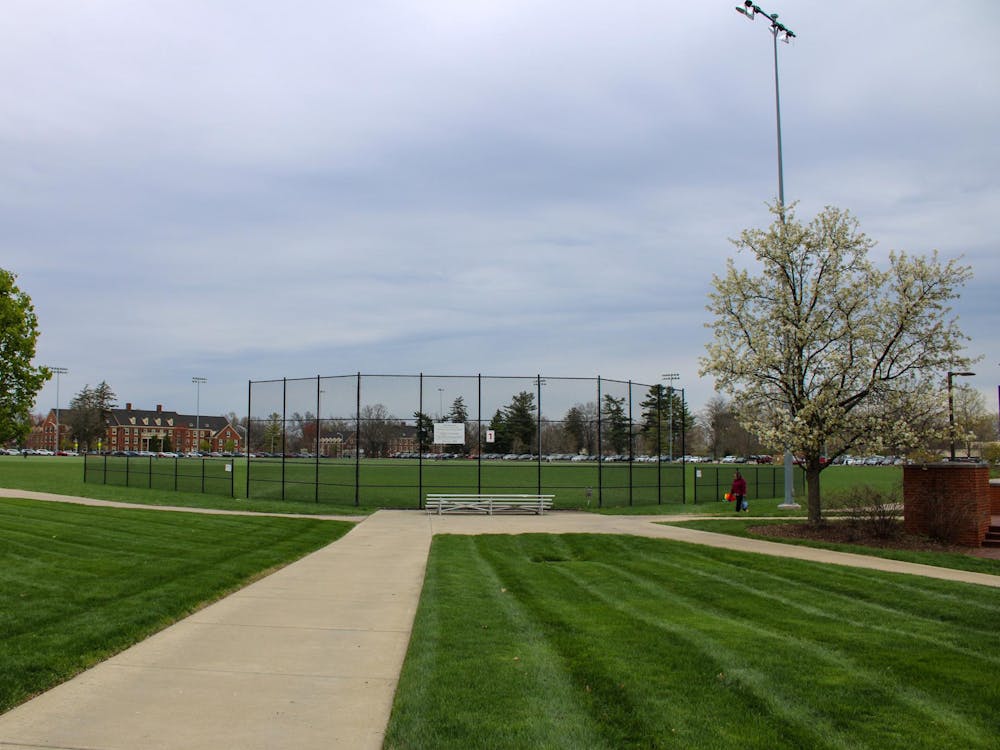At this point in the school year, most Miami University students have heard of Student Counseling Services (SCS). At my first-year orientation, a university official encouraged the crowd of soon-to-be students to visit SCS if we ever needed to talk to someone. Once I was on campus, I saw reminders and the center's call number posted on multiple bulletin boards in my residence hall. The message was clear: If you need help, call Student Counseling Services.
So, when my first-year anxieties began to pile up, I called.
I made an appointment over the phone for two weeks from that day, right before the end of the semester. The receptionist assured me that was the soonest appointment they had available.
When I got there, I filled out a 15-minute survey regarding my needs and reasons for visiting, and I waited for someone to meet with me.
The appointment lasted thirty minutes and ended with my counselor informing me that all the counselors had booked schedules, and there was no space for me.
This wasn't the only time I visited SCS. I tried to make appointments for the following spring and fall semesters, but again they told me that they didn't have the resources to help me, instead offering a list of off-campus professionals to contact.
My experience left me feeling frustrated and disappointed. Why didn't they tell me this over the phone? Why did they make me wait two weeks just to tell me they couldn't help me? Why do they continue to advertise their services when most people aren't able to use them?
College students' mental health is a hot-button topic for both news outlets and university administrations. According to a study conducted by the World Health Organization (WHO), 35 percent of college students have some kind of diagnosed mental illness, with the majority of these falling under the categories of depression and anxiety.
Miami's counseling center boasts an outwardly impressive variety of services, including workshops, individual and group sessions and services for students struggling with grief, or alcohol or drug abuse. They also offer other outreach programs, such as dog therapy and the recently launched campus care, a program where counselors are available on-campus for 15-minute drop-in sessions.
But what about when students like me seek help?
The counseling services website says individuals "in need of receiving longer-term counseling" or who have pre-diagnosed illnesses should look for someone in the community who can better serve their needs.
But no one tells you this before your appointment.
Enjoy what you're reading?
Signup for our newsletter
And, unless you're searching the website for this specific clause, you wouldn't be able to find it or the recommended off-campus care.
Transportation to an off-campus office can be an issue for many students. Also, many health care providers don't provide hours that work within a college student's schedule and will only accept certain types of insurance, which can be a problem for out-of-state and international students.
The pricing at SCS can be a complication for students as well. The first three appointments are free, but after that, the price for an individual appointment is $25. This may not sound like a lot at first, but has the potential to really add up if someone requires regular sessions.
And, these fine print issues could be a large factor in whether an individual continues to seek help.
These are the same students that would be turned away from SCS because they exhibit, "a history of: multiple hospitalizations, chronic suicidality and/or self-injury behaviors."
Miami's counseling center offers students a great first step in the right direction. But, it's just that: a first step.
A growing percentage of the student population is affected by mental illness, and those who are pre-diagnosed aren't eligible for on-campus treatment.
SCS isn't to blame: they do what they can with the limited resources they're allocated. But students' mental health should be more of a university priority and more easily accessible, because in some cases, it's life and death.
If you or someone you know is expressing suicidal thoughts or actions, please seek help by calling the Oxford Community Counseling and Crisis Center 24 Hr. Hotline: 1-844-427-4747, or the National Suicide Prevention Lifeline: 1-800-273-8255. In the case of an emergency, please call 911.



